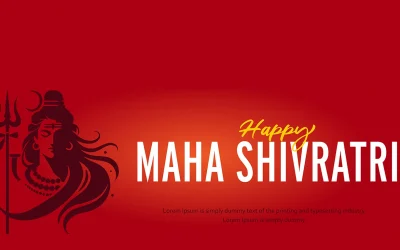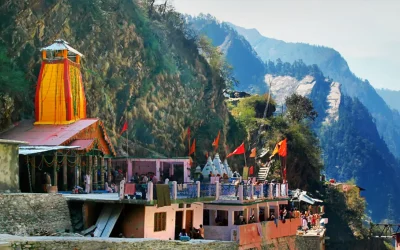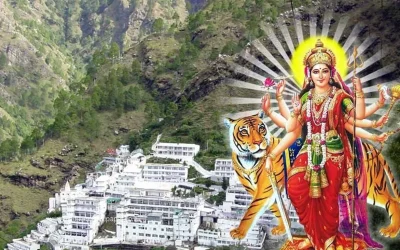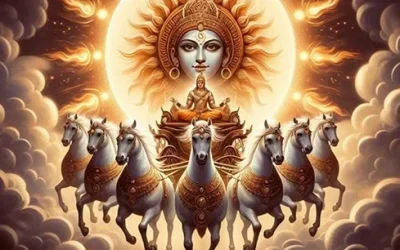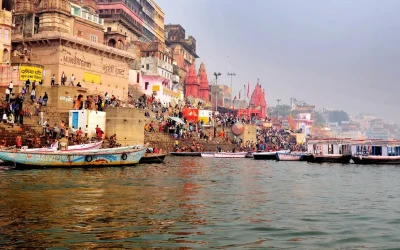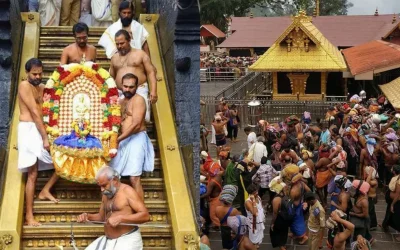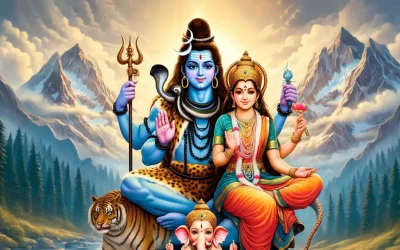The Epic Saga of Mahabharata: Unraveling the Threads of Time
Introduction:
The Mahabharata, a colossal tapestry of mythology, history, and philosophy, stands as a monumental epic that transcends time and cultural boundaries. Penned by the venerable sage Vyasa, this ancient Indian narrative is a reservoir of wisdom, encompassing diverse facets of life, from politics and warfare to morality and spirituality. As we embark on a journey through the Mahabharata, we delve into the origins, characters, themes, and profound lessons that continue to resonate across millennia.
The Origins:
The Mahabharata, believed to have been composed over 2,000 years ago, finds its roots in the rich tapestry of ancient Indian traditions. Vyasa, also known as Krishna Dvaipayana Vyasa, is credited with the compilation of the epic, which serves not only as a historical record but as a repository of cultural and spiritual heritage. Comprising 18 parvas or books, the Mahabharata is a literary masterpiece, with the Bhishma Parva, the Drona Parva, and the Kurukshetra Parva standing out prominently.
Central Characters:
At the heart of the Mahabharata lies the epic tale of the Kuru dynasty, with characters whose virtues and flaws mirror the complexities of human existence. The Pandavas, led by the righteous Yudhishthira, and the Kauravas, spearheaded by the ambitious Duryodhana, form the crux of the narrative. The enigmatic Krishna, who serves as Arjuna’s charioteer and guide, adds a mystical dimension to the tale, culminating in the timeless teachings of the Bhagavad Gita.
Themes and Lessons:
Beyond its narrative prowess, the Mahabharata delves into profound philosophical and ethical themes. The concept of dharma, central to the Indian ethos, is explored through the intricate dilemmas faced by the characters. Draupadi’s polyandrous marriage challenges societal norms, while the complex relationships among the cousins shed light on the intricate web of human emotions.
The Great Kurukshetra War:
The climactic Kurukshetra War, fought between the Pandavas and the Kauravas, serves as the fulcrum of the Mahabharata. This epic battle is more than a physical confrontation; it becomes a metaphysical battlefield where the principles of righteousness clash with unrighteousness. Lord Krishna imparts spiritual wisdom to Arjuna in the form of the Bhagavad Gita, addressing the moral and ethical quandaries that life presents.

Aftermath and Dhritarashtra’s Lament:
The war concludes with the triumph of the Pandavas, but victory comes at a great cost. The Kauravas are decimated, and the Pandavas, despite their triumph, grapple with the harsh realities of the aftermath. King Dhritarashtra, the blind patriarch of the Kauravas, laments the loss of his sons, reflecting on the futility of the power struggle that led to the devastating war.
The Yaksha Prashna:
Woven intricately into the Mahabharata is the Yaksha Prashna, a series of probing questions posed by a celestial being to Yudhishthira. These questions explore the nature of life, the impermanence of material wealth, and the essence of righteousness. Yudhishthira’s profound answers unravel deep insights, emphasizing the transient nature of human existence and the significance of virtuous living.
The Ascent to Heaven:
In the concluding parva, the Pandavas embark on a journey toward heaven. Along the way, they face trials and tribulations, offering reflective moments to ponder on their lives and actions. Ultimately, only Yudhishthira and a dog accompany Lord Yama to heaven, symbolizing the impermanence of relationships and worldly attachments.
The Message of Mahabharata:
The Mahabharata, extending beyond the confines of time, culture, and geography, imparts timeless lessons that resonate in contemporary society. It advocates the importance of upholding dharma, warns of the consequences of unchecked ambition, and highlights the inevitability of the cycle of life and death. The epic invites readers to introspect, urging them to navigate life’s moral complexities with a focus on spiritual evolution.
My Puja Experience:
In reverence to the Mahabharata, my puja experience is a solemn ritual inspired by the epic’s teachings. It involves a deep reflection on the principles of dharma, accompanied by prayers for wisdom, strength, and guidance. Engaging in meditation and reciting relevant verses from the Bhagavad Gita, I seek a connection with the profound spiritual insights imparted by Lord Krishna.
Veda Yatra Puja:
For an authentic and authorized puja experience, I recommend the Veda Yatra Puja. Conducted by experienced and authorized priests, this sacred journey through the verses of the Vedas involves the chanting of Vedic mantras. The puja invokes divine blessings for spiritual well-being, prosperity, and harmony, offering a transformative experience grounded in ancient Vedic traditions.
Conclusion:
The Mahabharata, with its intricate narrative and profound wisdom, continues to captivate the hearts and minds of millions. As we unravel the threads of this epic saga, we discover not just a story but a repository of timeless truths. Through my puja experience and the recommendation of the Veda Yatra Puja, I extend an invitation to fellow seekers to embark on a spiritual journey, drawing inspiration from the eternal lessons embedded in the Mahabharata. May the wisdom of this epic guide us in navigating the complexities of life and lead us toward the path of righteousness and spiritual evolution.
